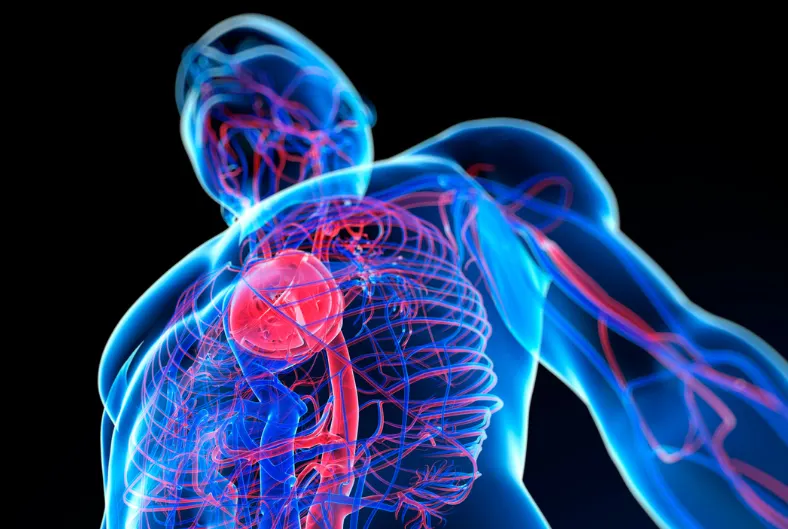Heart disease is one of the leading causes of illness worldwide, and protecting your heart is crucial for a long and healthy life. When it comes to boosting cardiovascular health, the foods you choose can make a big difference. Whole grains are packed with essential nutrients that support cardiovascular fitness, improve arterial stiffness, and offer several other health benefits. This blog will explore why whole grains are essential for your heart and how they can help you maintain cardiovascular wellness.
Whole Grains and Cardiovascular Health: A Perfect Match
Whole grains, such as oats, barley, brown rice, quinoa, and whole wheat, are unprocessed and contain more fiber, vitamins, and minerals compared to refined grains. These grains are not just a healthy option—they are a powerful tool to improve cardiovascular health.
When you eat whole grains, your body benefits in many ways:
- Improved heart function: Whole grains help in reducing the risk of heart disease.
- Reduced cholesterol levels: The fiber in whole grains lowers bad cholesterol levels.
- Control blood sugar: They help in maintaining balanced blood sugar levels, reducing the risk of diabetes.
- Lower blood pressure: Whole grains have been shown to help reduce high blood pressure.
- Boosted cardiovascular fitness: Regularly consuming whole grains supports better heart health over time.
Flexibility and the Heart: A Connection You Should Know
Heart health doesn’t only depend on food. Regular flexibility exercises can significantly impact how well your heart functions. By engaging in activities like yoga, stretching exercises, and other flexibility training, you improve your overall cardiovascular fitness. These activities help reduce arterial stiffness, increase blood flow, and allow your heart to work more efficiently.
Flexibility Benefits for Your Heart
Adding flexibility exercises to your routine has several flexibility benefits for cardiovascular health. These include:
- Better blood circulation: Stretching exercises improve blood flow, keeping arteries flexible.
- Reduced stress levels: Yoga and heart health go hand in hand as yoga helps lower stress, which can be harmful to your heart.
- Enhanced cardiovascular wellness: Flexibility training strengthens your cardiovascular system, leading to better overall health.
- Better oxygen supply: Stretching improves oxygen flow to vital organs, including the heart.
- Improved heart rhythm: Flexibility exercises help in maintaining a healthy heart rhythm.
Stress and Its Impact on Your Heart
Stress is one of the most significant contributors to heart problems. Chronic stress can lead to high blood pressure, which increases the risk of heart disease. Fortunately, stress reduction techniques such as yoga and heart health can help combat this problem. Yoga, in particular, has been shown to reduce arterial stiffness and lower stress levels, giving your heart the relaxation it needs.
Simple Stress Reduction Techniques for Better Heart Health
Here are some effective ways to reduce stress and improve heart health:
- Practice deep breathing: Deep breathing exercises can calm your nerves and improve your heart’s efficiency.
- Take short breaks: Taking breaks throughout the day helps in reducing stress and lowering heart disease risks.
- Engage in physical activities: Walking, cycling, or doing any form of physical exercise reduces stress and improves cardiovascular fitness.
- Mindful meditation: Spending a few minutes every day on mindfulness helps you relax and reduces stress.
- Get enough sleep: Sleep plays a crucial role in reducing stress and supporting heart health.
How Yoga and Heart Health Work Together
Yoga is more than just an exercise; it’s a lifestyle that promotes cardiovascular wellness. With its focus on controlled breathing, stretching, and mindfulness, yoga supports cardiovascular endurance and flexibility. It reduces arterial stiffness, improves circulation, and strengthens the heart.
Key Yoga Benefits for Your Heart
- Increased heart efficiency: Regular yoga practice boosts the heart’s efficiency in pumping blood throughout the body.
- Stress reduction: Yoga helps calm the mind, reducing harmful stress levels that negatively affect your heart.
- Improved circulation: Stretching exercises in yoga enhance blood circulation and lower the risk of blood clots.
- Lowered blood pressure: Yoga poses are effective in lowering blood pressure, keeping your heart healthy.
- Better heart rate: Yoga helps in regulating the heart rate, reducing the risk of heart disease.
Adding Whole Grains and Flexibility to Your Routine
To maximize heart health, it’s important to combine whole grains with physical activity. Whether it’s eating a bowl of oatmeal in the morning or practicing yoga in the evening, the combination of good nutrition and exercise strengthens your heart. As you build a routine, remember that cardiovascular endurance and flexibility go hand in hand. Both can work together to prevent heart issues and improve your overall well-being.
Tips for Adding Whole Grains and Flexibility Training to Your Life
- Start small: Begin by adding whole grain meals to your diet gradually. Opt for whole wheat bread or brown rice instead of refined versions.
- Incorporate stretching exercises daily: Even just 10 minutes of stretching can boost your flexibility and heart health.
- Try yoga for beginners: Start with easy yoga poses that focus on relaxation and stress reduction.
- Commit to regular physical activity: Choose exercises that improve your cardiovascular endurance and flexibility, such as swimming, walking, or cycling.
- Stay consistent: Consistency is key when it comes to both eating whole grains and staying active for better cardiovascular health.
A word from the Doctor —
Whole grains and flexibility exercises play a crucial role in maintaining and improving heart health. Whole grains, like oats and brown rice, are rich in fiber and nutrients that reduce cholesterol, lower blood pressure, and boost cardiovascular wellness. Flexibility exercises, such as yoga and stretching, improve cardiovascular fitness, enhance circulation, and reduce arterial stiffness. Together, they help reduce stress and improve heart function. A routine of whole grain meals and regular physical activity can significantly boost heart health and contribute to a long, healthy life. Consistency in diet and exercise is essential for optimal cardiovascular health.
So, get started by contacting us right away.

